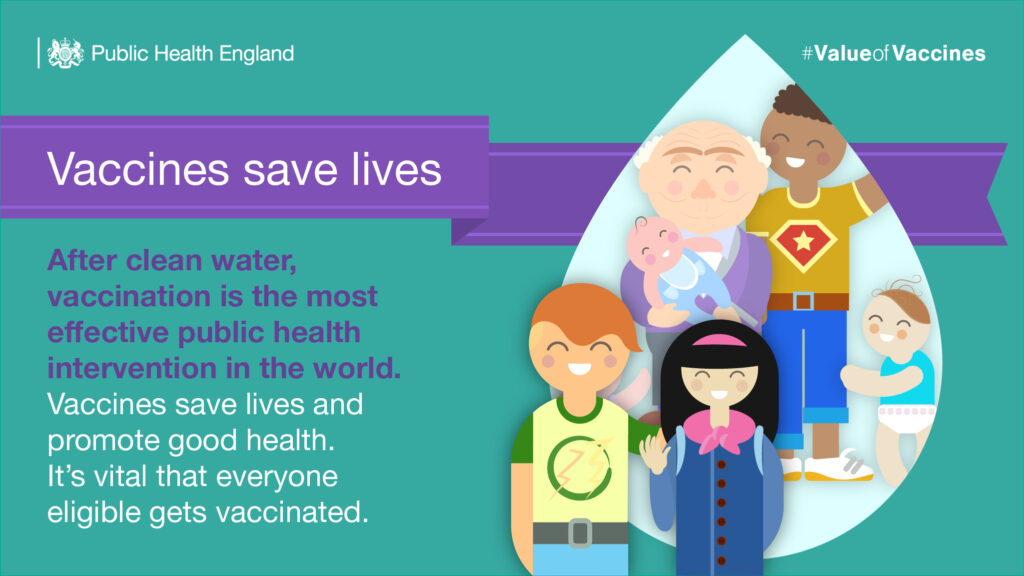
Measles is a highly infectious disease which can only be controlled by vaccination.
In 2017 the World Health Organization declared that the UK had eliminated measles. However, that elimination status has not been maintained. In this blog, we take a look at the reasons for the change in the UK’s status, and ongoing efforts to protect the population from measles.
Why have we lost elimination status?
WHO defines measles elimination as the absence of circulating measles, in the presence of high vaccine coverage, along with good systems to identify cases of the disease. In countries that have eliminated measles, measles can still occur, but these will be isolated cases that only have limited spread within the community.
The UK initially achieved WHO measles elimination status in 2017, based on data from 2014-2016.
However, in 2018, there was a marked increase in the number of confirmed measles cases, with 991 confirmed cases in England and Wales, compared with 284 cases in 2017. Furthermore, the same strain of measles virus (called B3 Dublin) was detected for more than 12 months across 2017 and 2018. Based on this, WHO determined that the UK could no longer be consider as ‘eliminated’ and that transmission of measles had been re-established.
Why have we seen an increase in measles cases?
Measles remains endemic in many countries around the world and there are currently several large outbreaks in countries across Europe where MMR vaccine uptake has been low. Until measles elimination is achieved globally we will continue to see importations of the measles virus to the UK and in order to limit spread within the UK, it is important to maintain high coverage of two doses of the MMR vaccine in the population.
Cases of measles occur in communities where vaccine uptake is sub-optimal.
Young, unvaccinated adults who have missed out on childhood MMR vaccination are also susceptible.
While coverage of the first dose in the UK has reached the WHO target of 95% for children aged five, coverage of the second dose is at 87.4%. As measles is highly infectious, even small declines in uptake can have an impact, and anyone who has not received 2 doses of MMR vaccine is at risk, particularly those travelling to countries affected by the ongoing, large outbreaks. To ensure more people are protected, it’s important that we focus efforts to increase uptake of the MMR vaccine of the routine childhood immunisation programme as well as catching up older children and young adults who missed out previously.
Herd immunity also plays an important role in protection. When a high percentage of the population is protected against a disease through vaccination, it becomes harder for the disease to pass between people who have not been vaccinated. This is particularly important as not everyone can get vaccinated, but those who can are able to help protect those who can’t. 95% of the population need to be protected to achieve herd immunity.
Measurements of public confidence in the UK vaccine programme are at an all-time high.

What is being done to combat outbreaks of measles?
While there has been an increase in measles over the past three years, it’s important to remember that measles remains uncommon in the UK because of the effective MMR vaccination programme. Before the measles vaccine was introduced in 1968, hundreds of thousands of cases occurred each year.
There is a lot of positive work happening across the health system on combating measles outbreaks and increasing MMR vaccine uptake.
As part of this, the NHS Long Term Plan includes a range of measures to maintain and increase uptake of both MMR doses. These include a fundamental review of the GP contract for vaccination and immunisation, and improved local co-ordination to support improving immunisation coverage in each area which can help target those groups who have low uptake. A check of MMR status for 10 and 11-year olds has recently been added to the GP contract.
The recent Government Green Paper on prevention proposed a vaccine strategy in addition to the implementation of the existing Measles and Rubella Elimination Strategy. The Department of Health and Social Care, working with PHE and NHS England, will deliver this comprehensive strategy in the Autumn.
PHE continues to call for those who missed out on their vaccine at the scheduled time to make an appointment now and we are running a public-facing campaign called Value of Vaccines to help share messages and information on vaccination, including MMR.
Elimination can only be sustained by maintaining and improving coverage of the MMR vaccine. Losing the elimination status is a stark reminder of how important it is that every eligible person gets vaccinated. It provides an opportunity to raise awareness of the potential risks posed by measles, the importance of vaccination and timely reporting of suspected cases to limit further spread.
Read other blogs on immunisation:
How do I protect my child from measles?
Childhood vaccination - what you need to know
Increasing vaccine uptake: Strategies for addressing barriers in primary care
